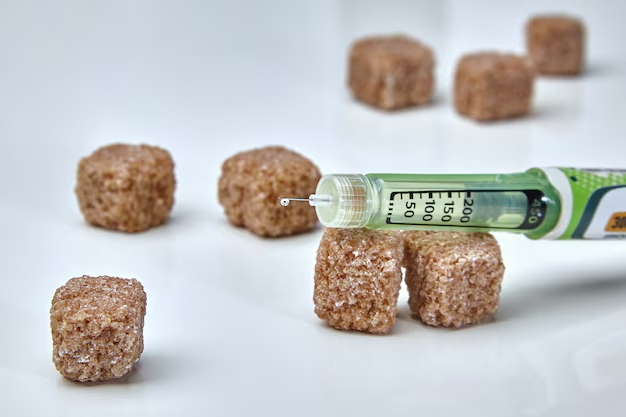Does Sugar Really Feed Cancer? Unpacking the Myths and Realities
In recent years, the belief that sugar fuels cancer cells has garnered a lot of attention and, understandably, concern among the general public. With countless headlines warning against the perils of sugar in cancer treatment and prevention, it's crucial to dig deeper into what science actually says about the connection between sugar and cancer. Let’s separate fact from fiction and explore this topic from different angles to arrive at a clearer understanding.
The Basics: How the Body Uses Sugar
Glucose as the Body’s Fuel
The human body relies on glucose, a type of sugar, as a primary energy source. Every cell, including those in muscle, brain, and other vital organs, uses glucose to function effectively. This glucose comes from carbohydrates in our diet, which are broken down into simpler sugars during digestion.
Sugar and Cellular Metabolism
Once ingested, glucose enters cells with the help of insulin, a hormone produced by the pancreas. Within the cells, glucose is metabolized through complex processes to release energy, which is critical for cellular activities, growth, and repair.
Understanding Cancer: What Happens in Cancer Cells
Cancer Cell Characteristics
Cancer cells differ from normal cells. They grow uncontrollably, evade the immune system, and often have altered metabolic processes. A renowned characteristic of cancer cells is their ability to thrive in environments that would typically inhibit normal cells.
The Warburg Effect
One such metabolic trait of cancer cells is the Warburg effect, a phenomenon in which cancer cells predominantly produce energy through a process called aerobic glycolysis, converting glucose into lactate, even in the presence of adequate oxygen.
The Big Question: Does Sugar Feed Cancer?
The Role of Sugar in Cancer Growth
It's a simplification to claim that sugar directly "feeds" cancer or that eliminating sugar from the diet can prevent cancer growth. Here's why: while cancer cells do consume glucose rapidly, so do normal cells. Cutting out dietary sugar entirely could starve normal cells, and it's not practical or advised.
Insulin and Cancer
Higher levels of insulin and insulin-like growth factors, often associated with a high sugar diet, have been suggested to promote cancer development. Insulin can stimulate cell growth, potentially impacting cancer cell proliferation.
The Nuances of Sugar and Cancer
Dietary Implications
Eating a diet high in refined sugars can lead to obesity, a known risk factor for several types of cancer. However, it’s the obesity and related hormonal changes that are linked to increased cancer risk, not the sugar itself directly contributing to cancer cell growth.
Healthy Diet Considerations
While it's important to moderate sugar intake, primarily to maintain healthy body weight and prevent other health issues like diabetes, a balanced diet rich in vegetables, fruits, whole grains, and lean proteins is key to a healthy lifestyle.
Exploding Myths: What You Need to Know
Myth 1: Total Sugar Abstinence Stops Cancer
Cancer cells utilize more glucose than normal cells, but glucose is vital for all bodily functions. Cutting out sugar entirely disrupts normal metabolic functioning more than it hinders cancer cells.
Myth 2: All Sugars Are Equal
Not all sugars have the same impact on health. Natural sugars in fruits and some dairy products come with vital nutrients and fiber, while refined sugars often found in sweets and sodas don't provide nutritional benefits.
Myth 3: Sugar Is the Sole Cause of Cancer
Cancer is multifactorial and arises from a combination of genetic, environmental, and lifestyle factors. Isolating sugar as a single causative agent oversimplifies cancer’s complex nature.
What Does the Research Say?
Current Scientific Consensus
Most scientists agree that while sugar does offer energy to cancer cells, it doesn't act as a unique fuel source. The focus should instead be on overall diet quality and lifestyle choices.
Ongoing Research Efforts
Research continues to explore the precise relationship between diet, sugar, and cancer development or treatment responsiveness. As science evolves, so does our understanding of these intricate connections.
Practical Guidance: Navigating Sugar Consumption with Cancer Concerns
Moderation is Key
Moderate sugar intake as part of a balanced diet is a pragmatic approach. Focus more on the overall dietary pattern rather than eliminating individual components completely.
Balanced Nutritional Choices
- Prioritize complex carbohydrates such as whole grains.
- Include plenty of fruits and vegetables for their antioxidants and fiber content.
- Choose lean proteins that support body repair and maintenance.
Lifestyle Overhaul for Cancer Prevention
Alongside dietary adjustments, regular physical activity, maintaining a healthy weight, not smoking, and limiting alcohol use remain cornerstone strategies for cancer prevention.
Summarizing the Sugar and Cancer Debate
By understanding that cancer cells do indeed consume glucose but are not uniquely fed by it, we can better navigate dietary choices without unnecessary fear. Eating a balanced and varied diet, managing weight, and living an active lifestyle are effective ways to promote overall health and potentially reduce cancer risk.
Key Takeaways in a Nutshell 🍎
- Glucose is Encompassing: Glucose is essential for all cells, not just cancer cells.
- Factor Interaction: Cancer is influenced by various factors, not just sugar.
- Sugar Moderation: Focus on eating less refined sugar, but don’t eliminate carbohydrates.
- Holistic View: Adopt a balanced, nutrient-rich diet for better health outcomes.
- Lifestyle Choice: Combine dietary vigilance with healthy habits like exercise.
By understanding these facets, you’re empowered to make informed dietary choices that support overall well-being while addressing cancer concerns with clarity and confidence.

Related Articles
- Are Breast Cancer Lumps Painful
- Are Chills a Sign Of Cancer
- Are Colon Spasms a Sign Of Cancer
- Are Lytic Lesions Always Cancer
- Are Polyps Cancer
- Can a Blood Test Detect Cancer
- Can a Ct Scan Detect Cancer
- Can a Dexa Scan Show Cancer
- Can a Gastric Emptying Scan Show Cancer
- Can a Lung Biopsy Cause Cancer To Spread
